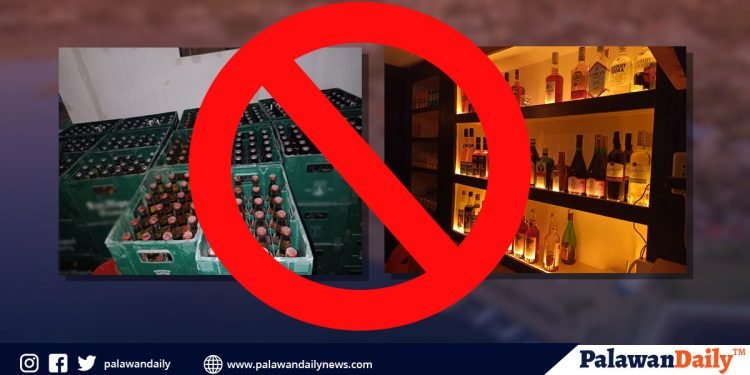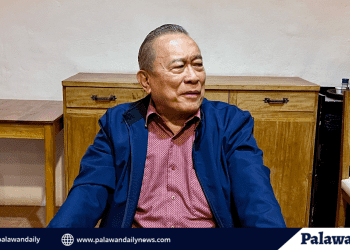The Sangguniang Panlalawigan of Palawan approved the Liquor Ban Ordinance for the whole Province of Palawan during their recent session last April 21.
Governor Jose C. Alvarez, through a letter, had requested the council to pass and approve an ordinance that would temporarily prohibit drinking and selling of liquor products during the implementation of extended enhanced community quarantine (ECQ) and state of calamity.
The chief executive, in his letter, pointed out that the temporary liquor ban aimed to promote “social distancing” practice while the ECQ is still observed.
In some municipalities in the province, a similar measure has already been implemented in order to fully implement the quarantine protocols and other health measures.
During the plenary discussions, Board Member Ryan Maminta from the Municipality of Narra suggested that there must be a penalty clause in the ordinance for the imposition of community service to be determined by the barangay or municipal government, depending on what level of government apprehends the violators.
Other members also suggested penalties for violations. The first offense according to them should be P1,500, the second offense will be P2,500 or imprisonment for ten days or both, upon discretion of the court while the third offense would be P5,000 or imprisonment or both, upon decision also of the court.
But Board Member Cesareo Benedito Jr. from Brooke’s Point asked if what ordinance would be implemented when a violator caught by authorities, as he scanned the Order of the Business, he read that the Municipality of Balabac, like the other municipalities, likewise enacted a liquor ban.
He asked if the provincial ordinance will supersede ng municipal ordinance or vice versa.
Vice Gov. Dennis Socrates, a lawyer in profession, answered, that for him, just his “mere opinion.” He said that “Both ordinances can co-exist, as long as the violator is not placed in double jeopardy. He can be charged under either the municipal ordinance or the provincial ordinance, depending on the complaining party and it is the court that will impose the appropriate penalty.”
Benedito still insisted that the P5,000 penalties, as it is under the power and function of the province or any other local government units, is far more practical as compared to the implementation of first to third offense penalties.
“For me, it is better, [that] we have imposed na kung ano ‘yung isa lang,” Benedito said.
But BM Maminta told to his colleagues that to provide a section superseding the action of the lower Council is “illegal” because they cannot supersede the lower Sangguniang Bayan o Barangay and the least that they can do is to review the actions done by them.
BM Maminta explained that it would be a “matter of enforcement” if the official imposed the municipal ordinance or the provincial ordinance.
But in the end, the Provincial Board decided to approved the penalty as suggested by Board Members Benedito and Maminta—a P5,000 fine for violation and imprisonment at the discretion of the court or in lieu of such community service.



















Discussion about this post